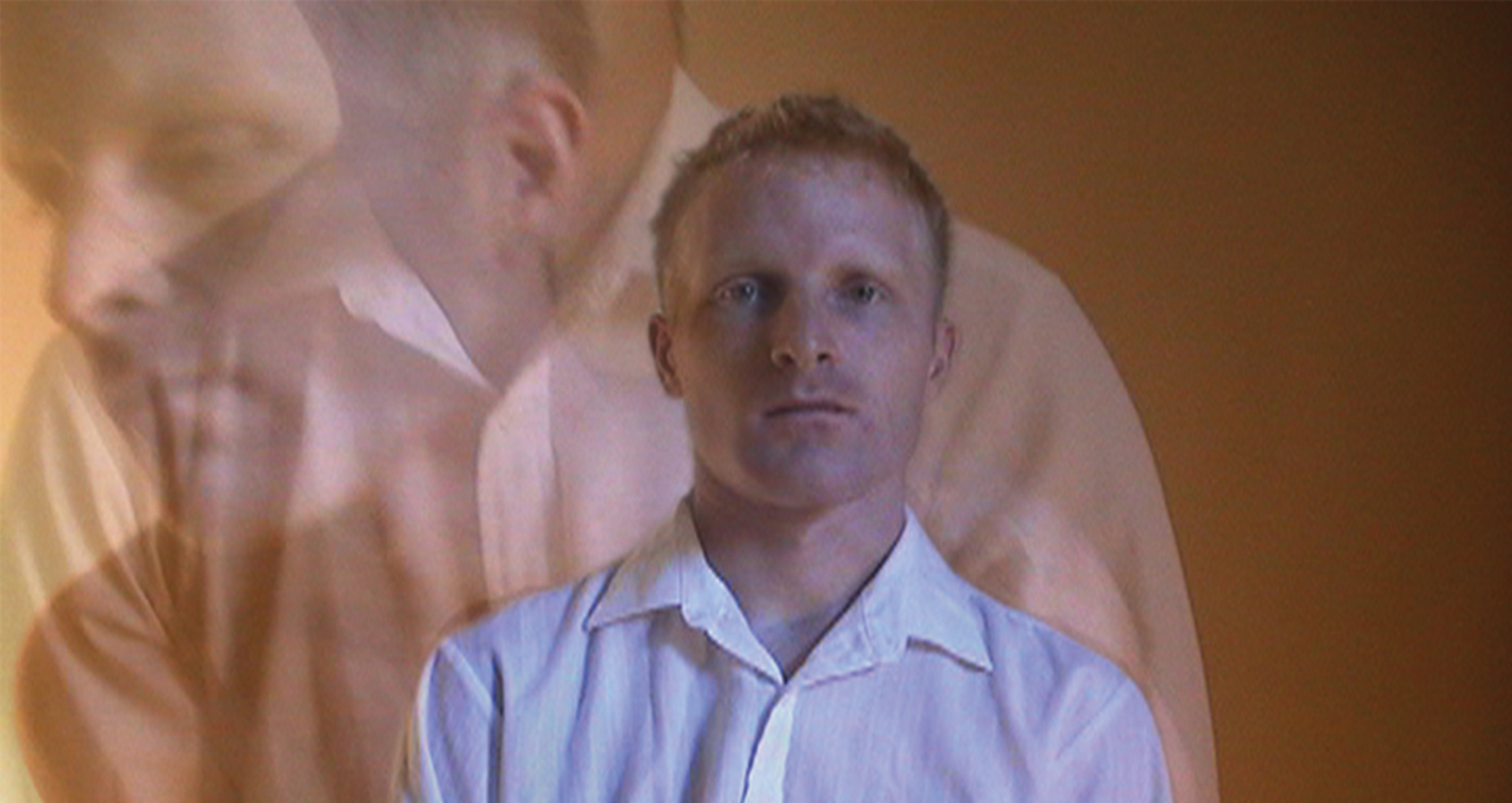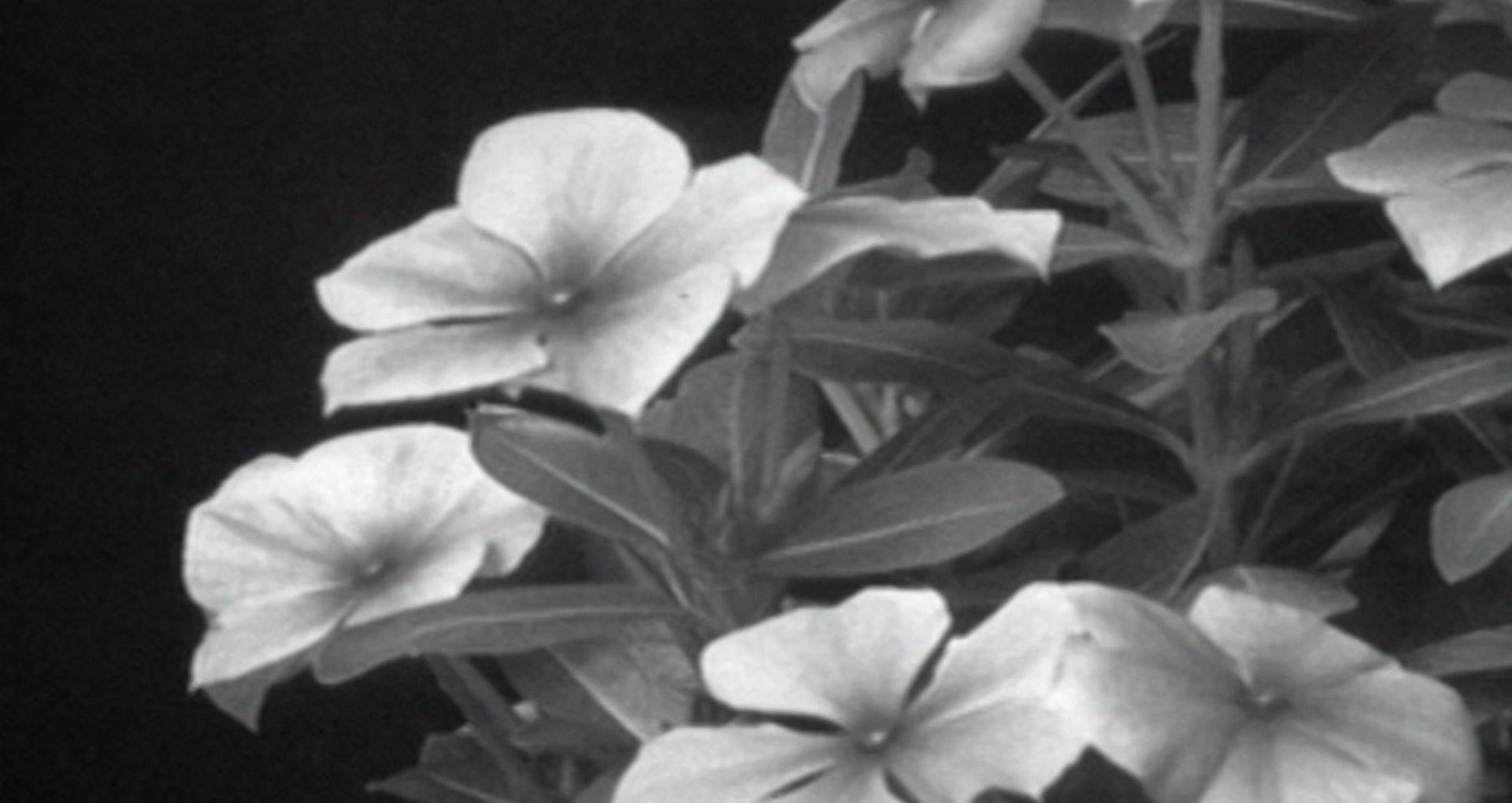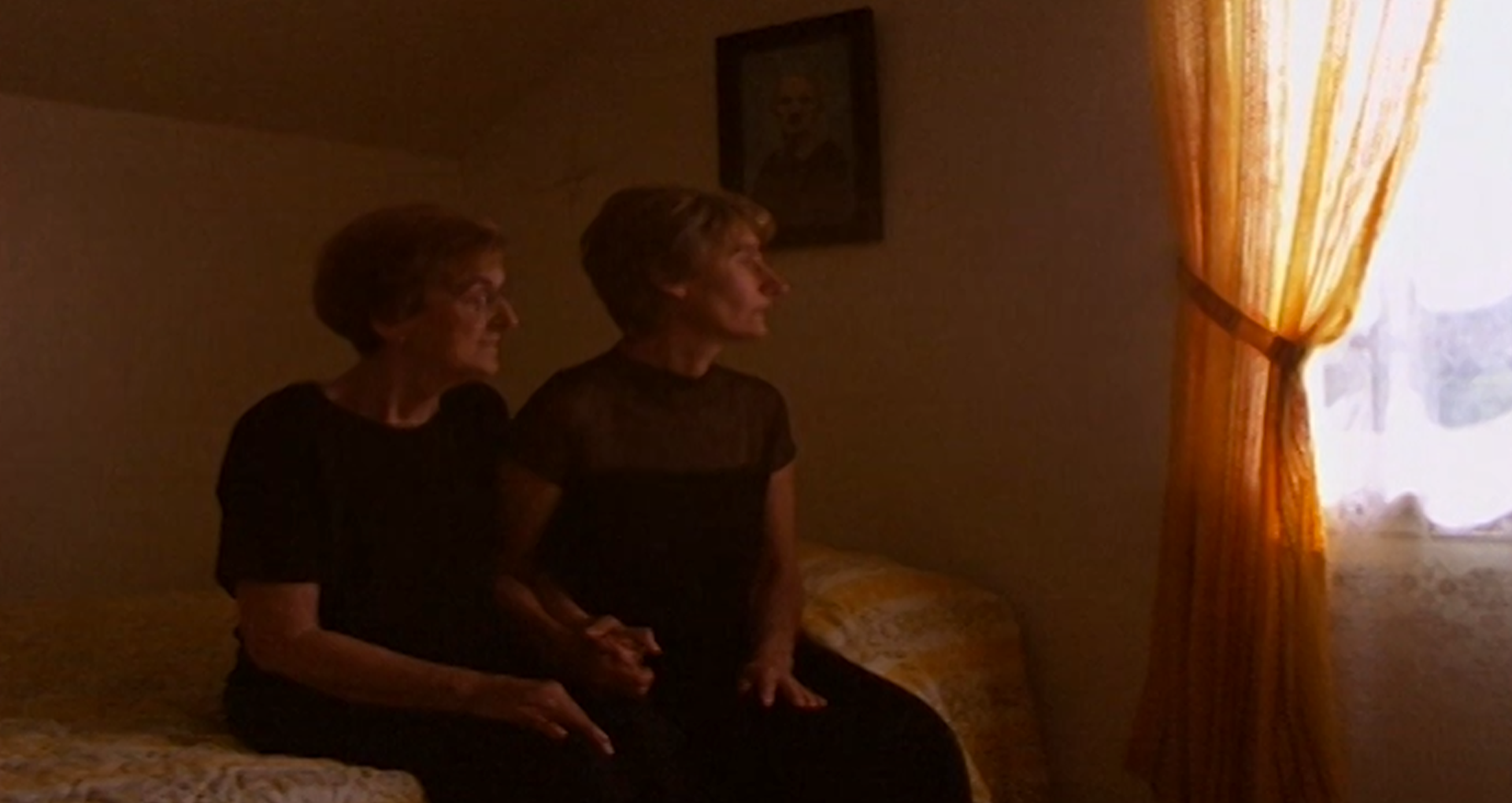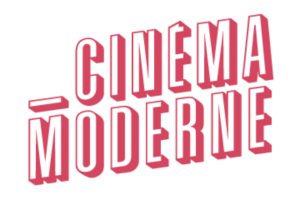
©Owen Eric Wood, Self Portrait, 2004
Lucie Szechter
Sharing One’s Own Face
Online programme
Free viewing
Sharing One’s Own Face is a project by French researcher and artist Lucie Szechter, made from Vidéographe’s collection as part of a research and curatorial residency, which considers the issues raised by the face in the practice of filming the self.
What is “autofilmage” (self-filming)?
Literally, auto, from the Greek αὐτὸς, means ‘by oneself’ and filmage, the act of filming. To film oneself. The first device for self-filming that comes to mind is undoubtedly the camera held by a fist turned towards the person who is filming themselves, as when ‘selfie’ videos are shot on a cell phone. This is easily identified when you come across a field of arms holding recording devices. The gesture brings together two functions of the video’s auteur within the actual frame itself: the person being filmed is also the person shooting the video, and vice versa. [ + ]
Selected works
Abba Mao, Pascal Lièvre, 2011, 4 min 30 s
L’image de l’Afrique au Québec, Cheikh Tidiane Gadio, 1986, 27 min
AD INFINITUM., Lydie Jean-Dit-Pannel, 2017, 34 min
Cut the parrot, Donigan Cumming, 1996, 40 min
You Must Remember This, marshalore, 1978-1979, 26 min
Manipuler son corps, Laëtitia Bourget, 1998, 4 min 30 s
Self portrait, Eric Owen Wood, 2004, 2 min 45 s
Headstrong, Chantal duPont, 2000, 30 min
Got away in the dying moments, Dennis Day et Ian Middleton, 1992, 5 min
Le récit d’A, Esther Valiquette, 1990, 20 min
Biography
Born in Nantes, France in 1987, Lucie Szechter obtained a Master’s Degree in Cinema Studies at the Université de Montréal before enrolling in the research/practice-based doctoral program ‘Art and Sciences’ at the École de Recherche Graphique (Brussels) and the Université de Liège with the national grant FRESH awarded by the FNRS. In 2014, Szechter shot her first short fiction film Plage(s), produced by the Groupe de Recherches et d’Essais Cinématographiques (G.R.E.C). Plage(s) has been selected for numerous festivals, including Côté Court (Pantin) and the Festival International de Films de Femmes (Créteil), and has received the Courts d’ici 2014 prize in Nice from Un festival c’est trop court. The following year, Szechter was invited by LE BAL contemporary art centre in Paris to realise a film project with children as part of their program, La Fabrique du regard. In 2016, she finished her second film, 27 ans, a documentary work combining sound testimonies and found footage. At the end of 2016, she was invited by G.R.E.C., France 2 and the Agence du court métrage to make a one-minute film for a collection paying tribute to Lumière operatives. Szechter is currently shooting her new film, L’Oreille décollée, produced by Aurora films with the support of the Pays de la Loire region and CNC. She also writes about film for Canadian and French magazines. cargocollective.com/lucieszechter






